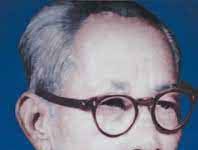Taslima Nasrin | Brief Biography
Taslima Nasrin | Brief Biography
Taslima Nasrin, an illustrious luminary in the realm of Bengali literature, emerges as a multifaceted persona, bearing the imprints of an author, a healer of bodies, and a champion of human rights, all within the contours of her being. Born on the auspicious date of August 25, 1962, amidst the tapestry of Mymensingh, in what was once known as East Pakistan but now unfurls as the sovereign territory of Bangladesh, Nasrin is a name that resonates with an assemblage of unwavering convictions. However, it is her unapologetic and resounding vociferation for the cause of women’s rights, the critique of religious dogma, and the clarion call for political emancipation that renders her persona enmeshed in a labyrinth of controversies and adversities within her native land.
The trajectory of Nasrin’s odyssey commenced within the hallowed halls of medical practice, a realm where she not only tended to the corporeal ailments of humanity but also nurtured the nascent seeds of her artistic prowess. In the annals of 1986, she forayed into the realm of literary creation, birthing her debut work, a compendium of poetic verses. Swiftly and decisively, the firmament of literary recognition acknowledged her as a prodigious entity, beckoning her to don the mantle of a prolific contributor to various periodicals and newspapers in her homeland. Within the tapestry of these publications, she dauntlessly unfurled her pen to etch tales of gender equality and the fetters of religious tyranny that had come to haunt her homeland.
Yet, the ink of Nasrin’s literary endeavors took a paradigm shift towards the political panorama in 1992, ushering forth the publication of her magnum opus, the tome entitled “Lajja” or “Shame.” Through its poignant prose, Nasrin orchestrated a symphony of denunciation against the shackles of religious fundamentalism, casting a spotlight on the cauldron of violence and the odious chalice of discrimination that the Hindu minority in Bangladesh was made to imbibe. The reverberations of her audacious exposition found themselves reverently etched in the annals of her nation’s history, though simultaneously met with an iron curtain of prohibition, marking her opus as verboten within her homeland. The clash of her audacious pen with the entrenched ideologies resulted in the unleashing of vitriolic threats of demise, orchestrated by the hands of Islamist groups.
In the annum of 1994, a somber shadow was cast upon Nasrin’s existence as an alleged blasphemer, precipitating a fatwa that violently uprooted her from the soil she called home. Her wanderings of exile unfurled over the canvases of Europe and India, where she continued to scribble the symphonies of her thoughts and lend her vocal cords to the symposium of human rights. Amidst these verses of isolation and exile, she conjured forth more chronicles, notably “Amar Meyebela” or “My Girlhood,” a narrative mosaic that intricately wove her own chronicle of grappling with the chains of child matrimony, the sting of maltreatment, and the venom of religious coercion.
The chronicles of Nasrin’s life saw a tempestuous turn in 1999 when the shores of Sweden extended their sanctuary to her beleaguered soul, allowing her to bask in the oasis of freedom she had hitherto yearned for. With her literary quill unfettered by geographical constraints, she continued her creative pursuits, while the refrain of her advocacy for women’s rights and justice echoed in the corridors of global conferences. Yet, even in her sheltered haven, the tendrils of controversy remained interwoven with her essence. The hallowed pages of her tomes remained banned on her homeland’s soil, while the insidious specter of death threats and harassment continued to cast a malevolent shadow over her existence.
In recent epochs, the narrative of Taslima Nasrin has intertwined with the unfolding chapters of India, her adopted domicile since 2004. However, the tapestry of her presence in this land has been marred by the acrimonious strains of persecution. The crescendo of 2007 witnessed her being expelled from Indian shores, a consequence of allegations levied by Hindu nationalist groups that she had besmirched the sanctity of Hinduism. The annals of her life subsequently bore witness to her sojourn across the European expanse before the United States extended its arms to welcome her in 2012, offering the solace of asylum.
The epilogue of Nasrin’s narrative is adorned with laurels and honors that bespeak the enduring valor of her commitment. Her writing and activism stand as effulgent beacons of intellectual courage, and the accolades she has garnered are emblematic of her resilience. The Carl von Ossietzky Prize for Freedom of Speech (1993), the Kurt Tucholsky Prize (1994), the Simone de Beauvoir Prize (2005), and the Ananda Puraskar (2017) form a constellation of recognition, a testament to her indomitable spirit in the face of adversity. Nasrin’s legacy resonates as a symphony of unwavering audacity, her words an unceasing clarion call for liberty, justice, and the unfettered flight of the human spirit.
. 0 0 0.
Sources:
“Taslima Nasrin: A Biography” by Meena T. Pillai (2004)
“The Lives of Taslima Nasrin” by Julie Stephens (2008)
“Taslima Nasrin: A Literary Biography” by Malini Bhattacharya (2017)
Taslima Nasrin’s official website (https://taslimanasrin.com). ***
N.B. This article originally belongs to the book entitled ‘Brief Biographies of Prominent Bengali Writers‘ by Menonim Menonimus.
Books of Biography by M. Menonimus:
- The World Writers-Brief Biographies
- Introduction to World Writers
- Introduction to World Personalities
- Love of Reputed Persons
- Brief Biographies of Prominent Bengali Writers
- Brief Biographies of Eminent Monarchs
- Brief Biographies of Ancient Thinkers and Writers ..
Books of Literary Criticism by M. Menonimus:
- World Short Story Criticism
- World Poetry Criticism
- World Drama Criticism
- World Novel Criticism
- World Essay Criticism
- Indian English Poetry Criticism
- Indian English Poets and Poetry Chief Features
- Emily Dickinson’s Poetry-A Thematic Study
- Walt Whitman’s Poetry-A Thematic Study
- Critical Essays on English Poetry
- Tawfiq al-Hakim’s Novel: Return of the Spirit-An Analytical Study
- Tawfiq al-Hakim’s Novel: ‘Yawmiyyat Naib Fil Arayaf’-An Analytical Study
- Analytical Studies of Some Arabic Short Stories
- A Brief History of Arabic Literature: Pre-Islamic Period (500 AD-622 AD)
- A Brief History of Arabic Literature: Early Islamic Period (622 AD-661 AD)
- Reviews on William Shakespeare’s Works
- Reviews of Charles Dickens’ Works
- Reviews of John Milton’s Literary Works
- Reviews of Some Iconic Travelogues …
Additional Searches:
- Famous Writers From West Bengal
- Top 10 Best Bengali Writers
- List of Bengali Language Authors
- Bengali Authors
- Jibanananda Das …











